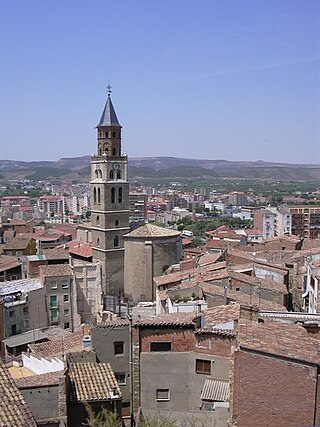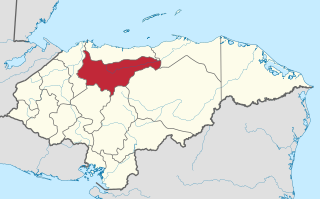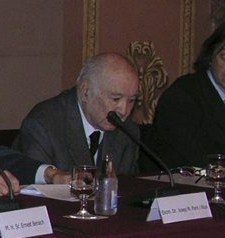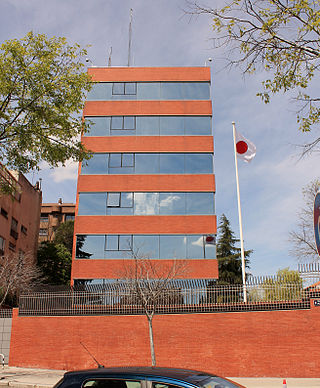Migration history
Pakistanis began settling in Spain, mainly in the city center of Barcelona, as early as the 1970s, and most Pakistanis in Spain still reside there [6] However, it took until November 2006 for the Pakistani government to approve plans to open a consulate there. [7] They primarily trace their origins to the province of Punjab. [8] Migrants largely consist of men; according to Spain's Instituto Nacional de Estadística (INE), only 13% are women. [9] There are various conflicting data regarding the size of their community. 2004 figures from Pakistan's Ministry of Labour, Manpower, and Overseas Pakistanis show just 2,000 Pakistanis in Spain, which would make them the 15th-largest Pakistani community in Europe, or just 0.2% of the total number of Pakistanis in Europe. [10] In contrast, the INE gave a figure for the year 2009 of more than twenty-six times that, 53,691, which represented growth of 27.5% over the 2007 figure of 42,105. [11] [9] Finally, some media reports around 2007 and 2008 give a figure of 70,000. [12] [13]
Religion
Islam is by far the most common religion among Pakistanis in Spain, and serves as an important marker of community belonging. In Solé Aubia and Rodríguez Roca's 2005 study, every single one of their 280 interviewees stated that he or she was a Muslim; of them, 82.5% indicated that they continued to practise Islam properly, while 13.2% claimed that they would like to practise it properly but were prevented by various constraints, and just 2.9% did not practise the religion because they did not want to. [15]
In Barcelona, the two mosques most frequented by Pakistanis are the Tariq ben Zyad Mosque and the Minhaj ul-Quran Mosque. The Tariq ben Zyad Mosque, on the calle Elisabets, was founded in 1981. It is named for Tariq ibn Ziyad, the general who led the Muslim conquest of Spain beginning in 711, and belongs to the Tablighi Jamaat movement. [20] The Minhaj ul-Quran Mosque, founded in 1997, is, as its name indicates, part of the Minhaj-ul-Quran International movement. [21]

As of 1 April 2024, Spain had a total population of 48,692,804. The modern Kingdom of Spain arose from the accretion of several independent Iberian realms, including the Kingdoms of León, Castile, Navarre, the Crown of Aragon and Granada, all of which, together with the modern state of Portugal, were successor states to the late antique Christian Visigothic Kingdom after the Reconquista.

Fraga is the major town of the comarca of Bajo Cinca in the province of Huesca, Aragon, Spain. It is located by the river Cinca. According to the 2014 census, the municipality has a population of 14,926 inhabitants.

El Paraíso is one of the 18 departments (departamentos) into which Honduras is divided.

Yoro is one of the 18 departments into which Honduras is divided. The department contains rich agricultural lands, concentrated mainly on the valley of the Aguan River and the Sula Valley, on opposite ends. The departmental capital is Yoro. The department covers a total surface area of 7,939 km2 and, in 2005, had an estimated population of 503,886 people. It is famous for the Lluvia de Peces, a tradition by which fish fall from the sky during very heavy rains.
Minhaj-ul-Quran International is an international non-governmental organization (NGO) founded by Shaykh-ul-Islam Muhammad Tahir-ul-Qadri in 1980 in Lahore, Pakistan. Its headquarters is based in Lahore, Pakistan and has branches in 93 countries.

Spain is a Christian majority country, with Islam being a minority religion, practised mostly by immigrants from Muslim majority countries, and their descendants.

Spanish is the de facto official and administrative language of Chile. It is spoken by 99.3% of the population in the form of Chilean Spanish, as well as Andean Spanish. Spanish in Chile is also referred to as "castellano". Although an officially recognized Hispanic language does not exist at the governmental level, the Constitution itself, as well as all official documents, are written in this language.

Immigration to Spain increased significantly in the beginning of the 21st century. In 1998, immigrants accounted for 1.6% of the population, and by 2009, that number had risen to over 12%. Until 2014, the numbers were decreasing due to the economic crisis, but since 2015, immigration to Spain has increased again, especially after 2021.

Martí de Riquer i Morera, 8th Count of Casa Dávalos was a Spanish literary historian and Romance philologist, a recognised international authority in the field. His writing career lasted from 1934 to 2004. He was also a nobleman and Grandee of Spain.

Japanese people in Spain consist largely of expatriate managers in Japanese corporations, as well as international students. There are also some people of Japanese ancestry in Spain, including descendants of 17th-century migrants to Spain, as well as migrants from among Nikkei populations in Latin America. According to Spain's National Statistical Institute, 4,898 Japanese citizens resided in the country as of 2009; Japan's Ministry of Foreign Affairs gave a higher figure of 8,080 as of 2015.
Moroccans in Spain formed 16.4% of the 4,549,858 foreigners in Spain as of 1 January 2017. They are again the largest foreign group in Spain, after they were surpassed temporarily by Romanians in 2007. In 2003, they were estimated to make up about 6% of all Moroccans abroad. In 2022 the number of Morrocans increase to 981,823

The Kingdom of Spain and the Republic of Turkey maintain diplomatic relations. Spain has an embassy in Ankara and a consulate general in Istanbul. Turkey has an embassy in Madrid and a consulate general in Barcelona.
Russians in Spain form one of the country's smaller foreign communities, making up about 0.83% of all foreigners in Spain.
Romanians form the second largest group of foreigners in Spain, after Moroccans. As of 2022, there were 535,935 people born in Romania who lived in Spain. Most of the immigration took place given economic reasons. The linguistic similarities between Romanian and Spanish, as well as Romanians' Latin identity, are also a reason for the country's attractiveness to Romanians.

Santa Ana de Velasco is a small town in the Santa Cruz Department, Bolivia.

Bulgarians in Spain are one of the largest communities of the Bulgarian diaspora. According to official 2019 data, they numbered 197,373, making them the tenth-largest emigrant community in Spain and the second-largest among Central and Eastern European emigrant communities.
HJCK El Mundo en Bogotá is a Colombian cultural radio station, founded 15 September 1950 and based in Bogotá. HJCK became an online-only station in 2005.

Spain and Pakistan have diplomatic and bilateral relations.
The Albanians in Spain are people of full or partial Albanian ancestry and heritage in Spain. They trace their ancestry to the territories with a large Albanian population in the Balkans among others to Albania, Greece, Kosovo as well as to Italy.












